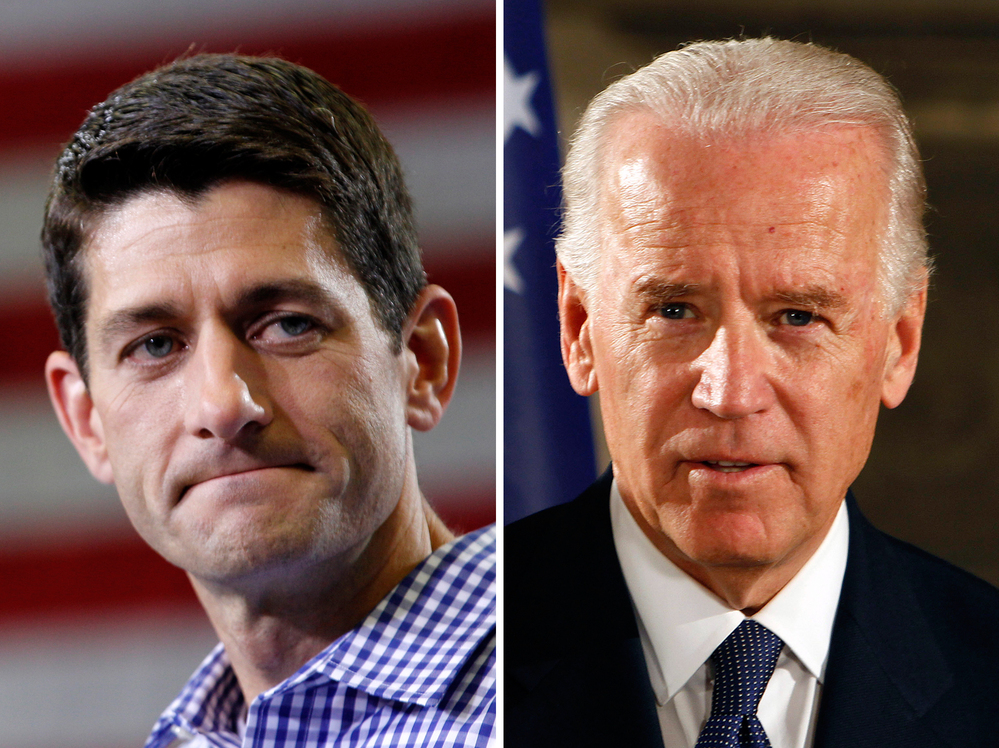 Two Catholics vying for the vice-presidency will meet on a stage in Kentucky Thursday night for a debate whose stakes are quite high. Vice President Joe Biden and Congressman Paul Ryan will face each other in the first major political event since last week, when Mitt Romney crushed a tired and seemingly deflated President Obama.
Two Catholics vying for the vice-presidency will meet on a stage in Kentucky Thursday night for a debate whose stakes are quite high. Vice President Joe Biden and Congressman Paul Ryan will face each other in the first major political event since last week, when Mitt Romney crushed a tired and seemingly deflated President Obama.
This is the first time in our nation’s history that two Catholics will share this stage, and I wonder if either candidate will cite their Catholic faith as a source of wisdom in addressing the many issues they will discuss. (I addressed some of these issues here).
If I were able to ask a single question to these devout Catholic practitioners, I would forego the obvious confrontational barbs (How do you, Joe Biden, square your support for abortion and same-sex marriage with the bishops’ teachings? And Paul Ryan, how do you as a Catholic defend slashing the social safety net to provide tax relief for the wealthy?) and instead ask how their Catholic faith shapes their formation as leaders.
The grayness of the Catholic faith sustains me. That is, there are truths we hold sacred, but Catholics at our best approach our unique places in the world in our current contexts with a sense of humility and wonder. We don’t believe the Bible to be literal and our history is so expansive that while we affirm those things we got right, we are forced to confront the times we get it so wrong. We rely on teachers, scripture and other writings, tradition, ritual, meditation, prayer, and saintly lives for guidance, insight, and wisdom, and then are compelled to apply what we discover to concrete, real-life situations. Ours is a big church, so the conclusions can vary widely. But this is an asset, not a liability. There should always be a process of discovery and application, and I wonder how these two candidates pursue that.
When the president asks for advice, how does Biden and Ryan’s faith help determine the answer? What do they draw from their faith tradition for guidance on complex issues such as poverty, war, reproductive medicine, and immigration, among others? Both men publicly tout their Catholic faith on the campaign trail. How does it influence their roles as leaders in a diverse, secular, polyvalent society?
What would you ask?







Both VP candidates were advantaged by having hgher educational expeierince exposing them to a broarders secular educational expereince outside of Catholic only education where more secular subjects such as law, politcal science, economics and history and civics and the value of public service would be more highly favored trather than a all-Catholic educational expereience with more heavy emphasis on religion, therology and religious service. A more secular educatetion would be more varied and better prepare a person for a politcal career. It would also create a person with a broader secular viewpoint which both man have.
I would ask each VP candidate how their secular higher education expereince helped inform their political career, their politcal ideas and their Catholic faith.
I would ask Ryan why he thought there is so little Catholic outcry against the weapons, war, drones, considering our bedrock of the sacredness of life. And could this schizophrenic split in our consciousness where we can kill with righteousness and abandon have something to do with why we cannot truly honor our unborn with little more than trite ideological rallies?
How is it some "test" to ask them about a subject they themselves have openly discussed? I don't care how they answer, and the "correctness" of the answer should have little to do with whether or not they are qualified for the office to which they are nominated. Dialogue isn't a test. And separation of church and state doesn't require politicians to anti-religious in their statements.
For Paul Ryan:
Given that ''Solidarity through the empowerment of others,'' is a major tenet of the Catholic faith. And given that ''Unity through tolerance,'' is a major principle of our democracy. How does Paul Ryan justify his alignment with the philosophy of ''Objectionism'' or ''Egoism?'' ''Self interest is the greatest possible act.''
For Joe Biden:
Given that ''Social Justice'' appears to be a major goal of the Obama - Biden team; How
will you convince America's secular society that they need to support each other? We know that Education is the answer. But, specifically, how will you integrate the concept of
''A government in support of the common good'' into the classroom?
Consequently, I find the idea of asking Ryan and/or Biden some ''gotcha'' religious questions by either catholics or non-catholics both irrelevant and offensive.
The candidates, like all of us, are acting out their beliefs.
Asking questions about their catholic views are irrelevant.
If they have been asked such questions, they should not have been asked such questions.
All too often discussion about the poor is from the perspective of economics or politics, without taking into account the daily lives of the impoverished.
This does not mean that we don't work for structural changes - but that we seek to find ways to work for structural changes with the poor, letting them (and not jsut their governments) have a role in setting priorities and working for social change.
Thus it would be good to ask them about their direct experiences with the poor (for more than a photo-op) and what they have learned from the poor, not only about them.